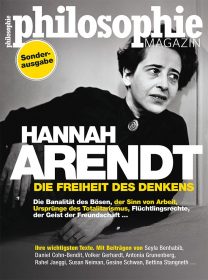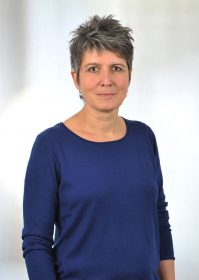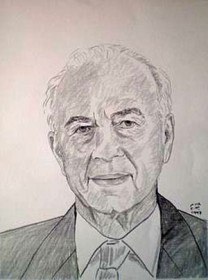An Interview with Ines Pohl
The European Union currently faces a tensile test: Great Britain’s vote to exit, the rise of rightwing populist movements, the lack of a solution to the flow of refugees, fear of terror attacks, and economic decline. Reference is often made, in the political debate about how to respond to these issues going forward, to history.
At our event, “Times of Crisis” on 7 September 2016, we would hence like to discuss the significance of the past for current European politics, particularly considering today’s problems, together with international guests from Great Britain, France, and Poland, as well as Germany. The panel will consist of Dan Diner, Dietmar Herz, Étienne François, Hans Kundnani, and Adam Michnik. The moderator will be Ines Pohl, of whom we asked four questions that extend our view to include the USA.
Nevin Ekinci: Ms. Pohl, you have been in Washington since the end of 2015 as the correspondent for Deutsche Welle. How do you perceive the debates about the current European “crisis,” from a distance? Would you even use the term “times of crisis?” → continue reading
 “Something happened there to which we cannot reconcile ourselves. None of us ever can,” said Hannah Arendt with regard to Auschwitz and its repercussions during a now legendary TV interview with Günter Gaus. A two-minute excerpt from that encounter serves today in our permanent exhibition as introduction to a film installation concerning the Auschwitz Trial (cf. this blog entry about the reopening of that part of the exhibition in summer 2013).
“Something happened there to which we cannot reconcile ourselves. None of us ever can,” said Hannah Arendt with regard to Auschwitz and its repercussions during a now legendary TV interview with Günter Gaus. A two-minute excerpt from that encounter serves today in our permanent exhibition as introduction to a film installation concerning the Auschwitz Trial (cf. this blog entry about the reopening of that part of the exhibition in summer 2013).
In our exhibition of the work of Fred Stein in 2013/14 we presented photographs inter alia of the political theorist Arendt herself, as you can read in our blog and on the exhibition website.
Hannah Arendt is a major influence also on contemporary artists: Alex Martinis Roe, in the work she produced for our art vending machine, “A Letter to Deutsche Post,” demanded a re-issue of the postage stamps bearing Arendt’s portrait (cf. our interview with the artist in this blog). Also, a symposium held at our museum last December drew on the work of Hannah Arendt as a springboard for discussion of the current significance of pluralism in theory and practice (cf. the topics addressed there, as listed in our events calendar).
Philosophie Magazin has just devoted a special issue to this exceptional thinker. Titled Hannah Arendt. Die Freiheit des Denkens [Hannah Arendt. The Freedom of Thought], on the newsstands as of 16 June. → continue reading
Remembering 4 November 1995
Twenty years ago today, 4 November 1995, Israel prime minister, Yitzhak Rabin, was assassinated following a peace rally in central Tel Aviv. Mirjam Wenzel was there.
“It was a mild evening at Kikar Malchei Yisrael (Kings of Israel Square, now Yitzhak Rabin Square) in the middle of Tel Aviv, where throngs of people had gathered under signs of shalom achshav (peace now) to show their support for Rabin and Shimon Peres and their push for peace. The national religious movement had grown more hostile towards the government in recent weeks, and the media had been reporting its demonstrations with posters of Rabin in a SS uniform. No one could imagine, at least not within my circles, that this movement could turn deadly. From the Tel Aviv office of the Friedrich Ebert Foundation, where I had a semester internship, the Oslo Accords were viewed as a political and economic fact. → continue reading


